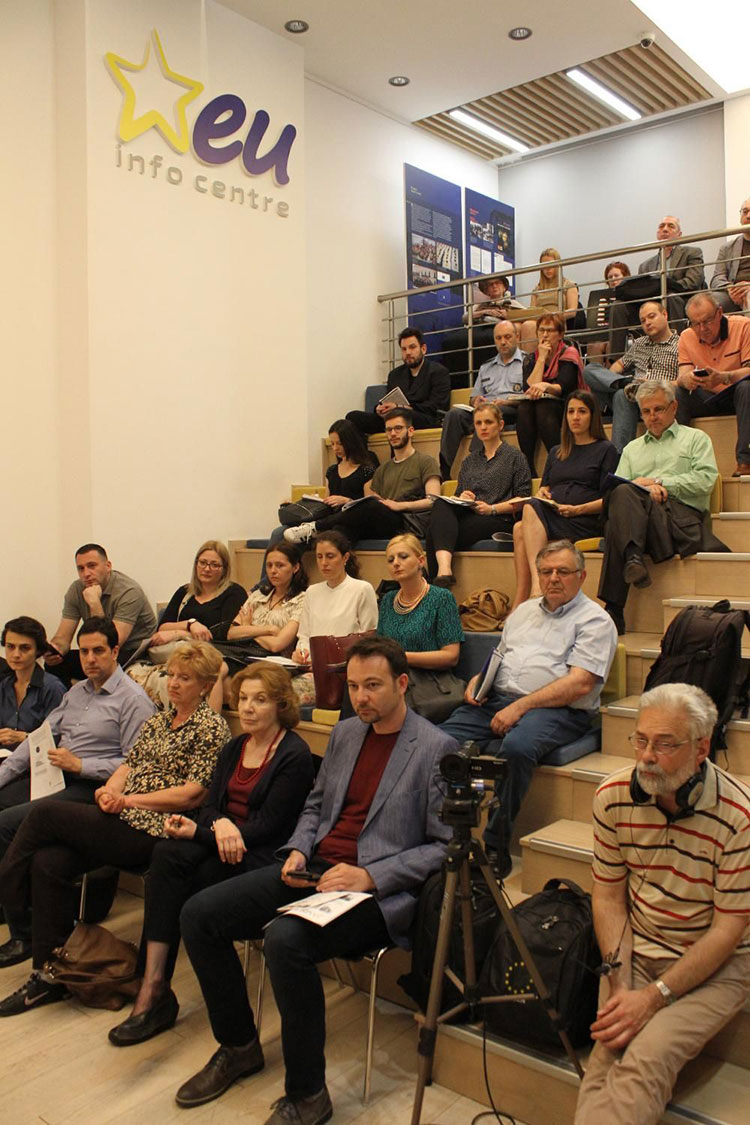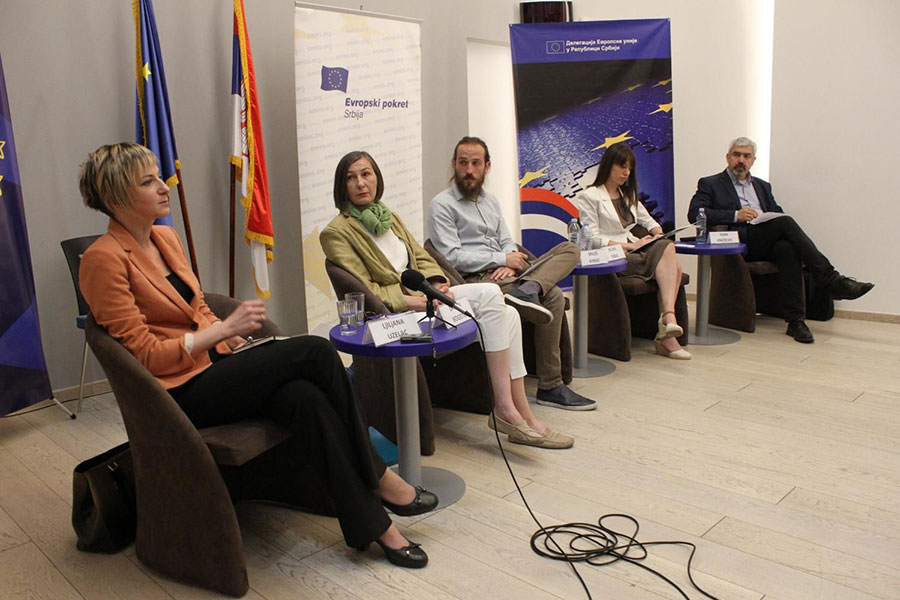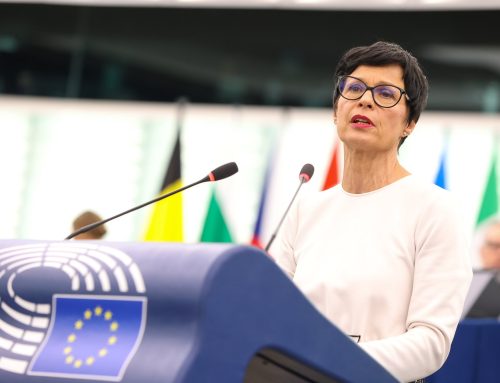Through IPA programme Serbia has received in 2015 for the first time a sector budget support for public administration, said Danka Bogetić, Project Manager for Public Administration Reform to the EU Delegation in Serbia.
At the public debate “Public Administration Reform in Serbia – civil society’s contribution and citizens’ participation” held in EU Info Center, Bogetić said the importance EU has given to the public administration reform was shown through continuous investment of funds and resources for numerous programmes in this field.
Bogetić cited, as an example, a sector budget support worth 80 million euros, out of which 70 million would go directly to the budget, while 10 million were provided for technical support to help achieve priority goals and guide the process of the reform.
 Miloš Đinđić, Project Manager for Good Governance of the European Policy Centre, said civil society has been included in the implementation process of the Public Administration Reform Strategy and added that he expected their participation in the making of a new action plan.
Miloš Đinđić, Project Manager for Good Governance of the European Policy Centre, said civil society has been included in the implementation process of the Public Administration Reform Strategy and added that he expected their participation in the making of a new action plan.
“Since 2014, the Ministry of Public Administration and Local Self-Government has given its best for that process to be inclusive and to include civil society organisations”, said Đinđić.
Ljiljana Uzelac, Head of the group managing public administration’s reform within the Ministry of Public Administration and Local Self-Government said the civil society representatives have been included in numerous work groups and legislative process.
She noted an example of civil society organisations included in the planning of the action plan for implementation of the Public Administration Reform Strategies in 2015 and 2017.
“A new action plan is in the planning phase and the call for NGO participation in the work group is closing,” she said, noting the importance of joint work on the public administration reform.
Jelena Ribać, Project Manager for “Partnership for Good Governance” of the European Movement Serbia said the goal of this project was to contribute to a creation and implementation policy in public administration reform oriented to the citizens, the improvement of responsibility of public institutions for a quality of the services offerred to the citizens.
“We focused on the three areas of public services: the Ministry of Interior and the services they provide in issuing personal documents; Ministry of Health in primary health service domain. The third area is education, where the focus is on a process of enrolment of children in primary schools and kindergartens,” she said.




